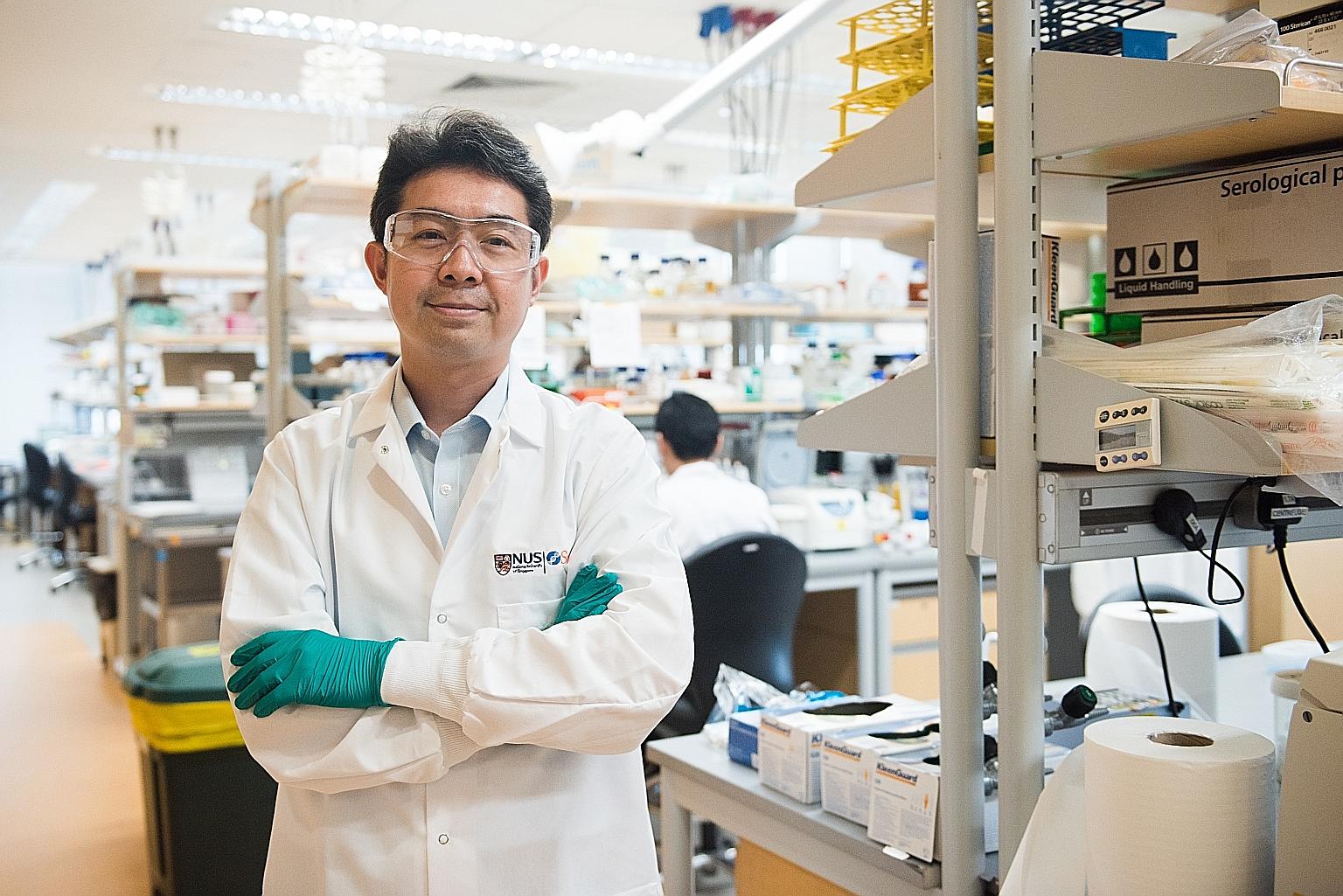Cannabis-derived drug approved for second patient
Pharmaceutical for person with treatment-resistant epilepsy after all options exhausted
Sign up now: Get ST's newsletters delivered to your inbox

ASSOCIATE PROFESSOR YEW WEN SHAN.
Approval to use cannabis-derived medication has been granted to a second person in Singapore.
The "young patient" who has treatment-resistant epilepsy was allowed to use a cannabinoid pharmaceutical, commonly known as medical cannabis, following an application after December 2019, the Ministry of Home Affairs (MHA) said in response to queries from The Straits Times.
MHA said approval was granted "as all available and suitable therapeutic options had been exhausted".
ST reported on Dec 1, 2019, that the authorities had allowed, for the first time, the use of cannabis-derived medication for treatment of a girl with drug-resistant epilepsy.
Referring to the second patient, MHA said: "Given the extremely debilitating progressive condition, the patient's doctor applied to the Health Sciences Authority (HSA) to bring in a cannabinoid pharmaceutical, considering that the treatment might address the unmet medical need."
The request was reviewed and approved by the HSA, the Central Narcotics Bureau, the Health Ministry as well as MHA.
Citing patient confidentiality, MHA did not give updates on the first patient's condition after the cannabinoid treatment, and also did not give details of the second patient's gender and age.
Cannabinoids refer to chemical compounds found in the cannabis plant, of which the two most prominent are cannabidiol (CBD) and tetrahydrocannabinol (THC).
Both compounds have the potential to help certain medical conditions but have different effects on the body. THC is the psychoactive component in the plant that gives the "high" associated with cannabis, while CBD is non-psychoactive and has been labelled by the World Health Organisation (WHO) as having no public health risk and potential for abuse.
MHA did not confirm if the treatment used in both cases was the prescription drug Epidiolex, which is the first and only pharmaceutical-grade cannabinoid medication approved by the US Food and Drug Administration (FDA).
The medication, which contains the non-hallucinogenic CBD, is used to treat Lennox-Gastaut syndrome and Dravet syndrome, both of which are severe forms of epilepsy that begin in early childhood. The drug works by slowing down brain signals that lower the excitability of cells that cause seizures.
Epidiolex has been approved for medical or clinical-trial use in the European Union as well as countries like South Korea and Japan.
A United Nations commission in December last year voted to reclassify cannabis for medical purposes as less dangerous. It was previously listed in Schedule IV under the Single Convention on Narcotic Drugs of 1961, alongside heroin and other opioids considered harmful to public health.
The Singapore Government registered its disappointment over the UN move, with MHA issuing a statement in December saying it could give the wrong perception, especially among youth, that cannabis is less harmful than before despite strong evidence showing otherwise.
MHA reiterated that Singapore would continue to enforce strict laws against the trafficking, possession, consumption, and import and export of illicit drugs, including cannabis, to protect the health and welfare of the people.
Meanwhile, efforts here to produce synthetic cannabinoids for medical use have proven fruitful.
"Significant progress has been made," said Associate Professor Yew Wen Shan, an enzymologist at the National University of Singapore, who leads a team that has been studying the components of cannabis to find ways to produce them sustainably for medical use.
In the last three years, Prof Yew and his team have discovered how to biosynthetically produce at least five lesser known cannabinoids and are now studying if they can be used medically. They can now produce these cannabinoids at the laboratory scale of not more than five litres.
Cultivating the cannabis plant is illegal in Singapore, so Prof Yew's team has biologically engineered yeast and other micro-organisms to produce cannabinoids - like CBD - in the same way a cannabis plant might produce it.
The team has filed three international patents for the synthetic cannabinoids they have produced.
Prof Yew began work on his project in 2018 under the $25 million synthetic biology research and development programme supported by the National Research Foundation.
"This is all part of efforts to improve public health as (the biosynthetically produced cannabinoids) could be used as sustainable therapeutics," he said, noting, however, that this process has a "long pathway" of 20 years from laboratory research to use as medication.


